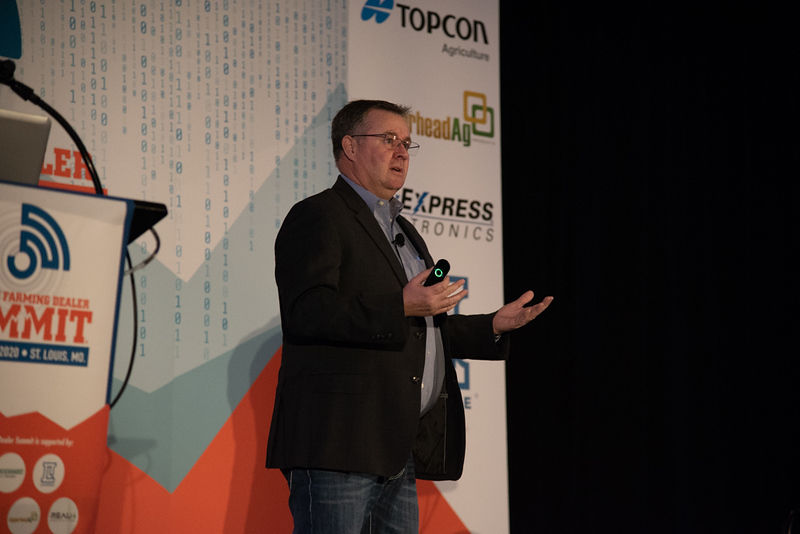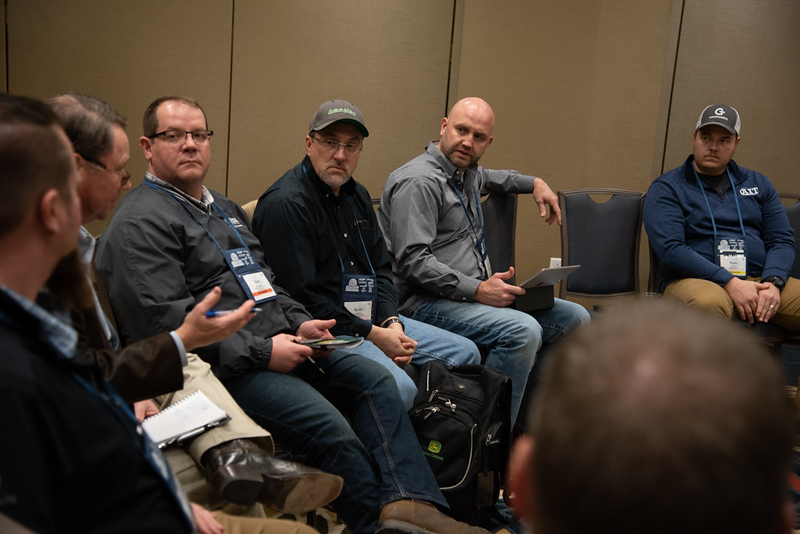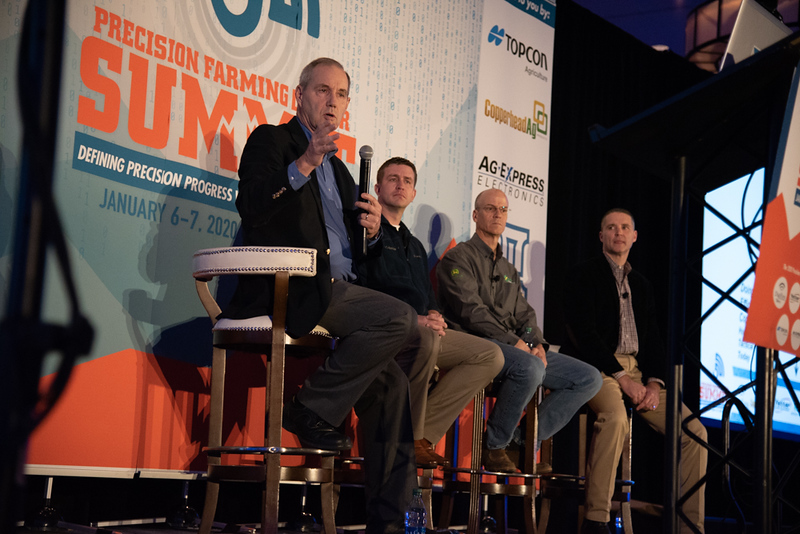Here are 5 takeaways from this year’s Precision Farming Dealer Summit, in St. Louis assembled from speaker sessions, roundtable discussions and hallway conversations.
1. The agriculture industry has changed dramatically in the past decade, and practical applications of technology are improving every aspect of growing crops. When a farmer sits in their tractor, they are running their farm, and growers now have access to large amounts of data, thanks to drones and apps.
Precision dealers should be actively working to help their customers develop technology plans to better utilize the various technologies, tools and data that is available to them.
“Think of it differently than a bunch of widgets,” says ag consultant Chad Colby, who opened the Summit with a session on why dealers need to be thinking about age and application of more than just ag technology. Only 30% of technology is optimized, he says, so it creates an opportunity for precision ag professionals to demonstrate their value to customers, beyond more than simply the hardware and components they sell.

2. Time is more valuable than ever — bill it. During one of the summit roundtables on better billing strategies for precision service, attendees discussed how precision ag professionals are not just technical junkies. Sales and “soft skills” are now critical skill sets for precision dealers.
It’s up to them to also be able to sell the value of anything that they are doing — including their time, unique expertise and even travel time to reach customers’ farms. Maybe that looks like a package sold with every new piece of equipment, maybe it’s an à la carte charge, or maybe senior specialists should be charging more for their time compared to less experienced technicians.
There are a variety of ways to work with customers to provide outstanding service while still staying in the black, but one thing is certain — precision dealers must not be afraid to bill for their time.

3. Customer service has higher demands than ever before. However, that means precision dealers should not be afraid to fail when striving to meet those high demands. According to Tom Rosztoczy, owner of Stotz Equipment based in Avondale, Ariz., precision ag professionals should think in terms of selling solutions, not products.
For too long, dealers have been, “really good service people, but not good at obtaining new customers,” says Rob Schmidt, COO of TruAcre Technology, an independent precision dealership in Muscatine, Iowa. Organizational leadership should also be sure to include wins from the precision ag department to reiterate the value of that segment of the business.
4. Recruiting and retention are perennial topics of conversation as dealers looks for more effective ways to attract and keep precision talent. But making a high-volume hire in a short time period brings an additional set of onboarding challenges and expectations.
In 2019, Greenway Equipment, a 31-location John Deere dealership, hired 15 new precision farming specialists, based on the renewed goal of enhancing their customers’ ag technology experience and limiting the potential of employee burnout.
“We knew that to create that customer experience, we need good staff,” says Jared Field, with Greenway. “So we added about 15 precision ag-specialists across the dealership. We did it based on the number of customers in the area. Generally, each one of these guys has 40 to 60 customers, probably 30 of them more intensive than others. But ultimately they have about 60 customers that they're following up with on their precision ag needs and making sure they're up to date with what they need.”
It’s been a year of learning, but Field says there have been positive gains. “There's certainly growing pain, mainly on the HR side,” he says. “When you add that many people, it’s a lot of different personalities trying to work together, but we have hired a very dynamic team and a lot of them really get along together.
One of the biggest growing pains is they were hired as precision ag support people, but we're being asked more and more to the salespeople.”

5. It’s easy to hate on social media, but that’s where farm customers’ conversations are happening, especially when it comes to precision purchasing. According to ag marketing strategist Heather Hetterick, Facebook and Google know what your customers are in the market for — before they even think about coming to a dealership. “You need to get in the game with YouTube to help educate people,” agrees Colby. “Building social media doesn’t happen overnight. It takes time, but you need to have a plan on what gets shared.” Precision ag professionals should take the time to record every type of experience — and then share it on social media.







